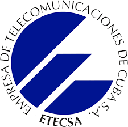Executive Secretary

21st International Symposium on Electrical Engineering
SIE 2025
Abstract
The presence of natural phenomena, such as hurricanes and heavy rains, has led to the collapse of the National Electric Power System (SEN) and the loss of energy service to Cuban society, impacting the country's energy security indicator. The SEN's current working procedures in the event of these events, to our knowledge, have not applied a natural science approach within the framework of energy security to counteract their impact. Furthermore, the increase in residential consumption and the private and state sectors, coupled with the decision to introduce Renewable Energy Sources (RES), leads us to consider the possibility that the SEN's current requirements may have changed. Therefore, the current operating methodology, in the presence of these phenomena, must be evaluated and amended as necessary. The objective of this project is to develop a methodology to guarantee Cuba's energy security in the face of natural phenomena that could impact the operation of the SEN. This methodology is aimed at identifying threats, as well as the causal relationship between power supply interruptions and the technical condition of the SEN equipment and meteorological conditions. This methodology is designed to develop security process models to increase the stability and reliability of the SEN, which is consistent with the objectives of the country's energy transition and the national program for comprehensive and sustainable energy development.
Resumen
La presencia de fenómenos naturales, como huracanes y lluvias torrenciales, ha provocado el colapso del Sistema Eléctrico Nacional (SEN) y la interrupción del servicio eléctrico a la sociedad cubana, impactando el indicador de seguridad energética del país. El concepto de la seguridad energética está asociado, invariablemente, al concepto de seguridad nacional, por lo que lograr que el SEN ofrezca un servicio estable y seguro va mas allá de lo que la propia Unión Eléctrica (UNE) pueda o deba realizar, ya que en Cuba los ingresos de la UNE, con los cuales podría mantener o mejorar sus instalaciones son, como se conoce, en moneda nacional, con lo cual se hace muy difícil que como organización pueda cubrir sus gastos en mejoras tecnológicas o introducción de nuevas tecnologías; depende, por tanto, de las erogaciones que el Estado pueda realizar o de aquellos financiamientos que el mismo pueda lograr a través de negociaciones con entidades extranjeras y donde, el siempre presenta bloqueo económico, financiero y comercial del Gobierno de Estados Unidos hará muy difícil el camino para lograrlas. Por otro lado, es evidente que el aumento del consumo residencial, así como de los sectores privado y estatal, sumado a la decisión de introducir Fuentes de Energía Renovables (FRE), lleva a considerar la posibilidad de que las necesidades actuales del SEN hayan cambiado. El presenta trabajo expone los elementos básicos del concepto de seguridad energética y aquellos elementos claves que permitan entender su aplicación al caso de Cuba.
About The Speaker

Dr. Miguel Castro Fernández

Discussion


 Bronze
Bronze